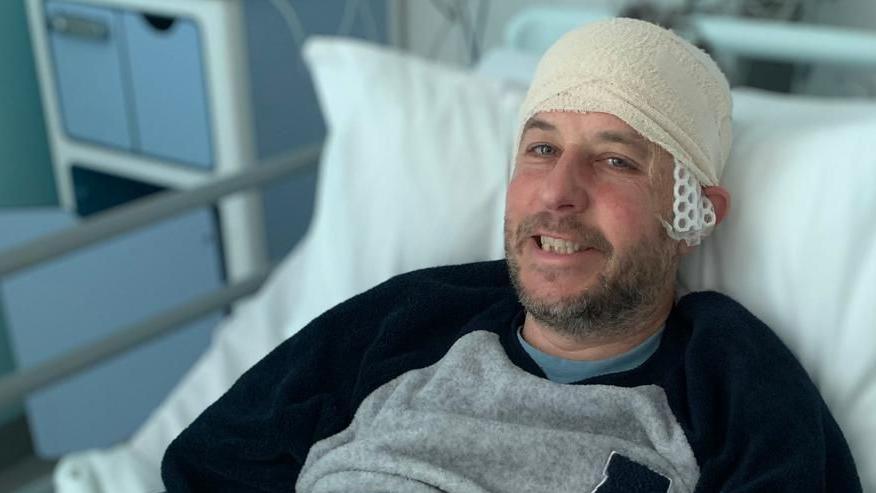Get cancer check if personality changes, says widow
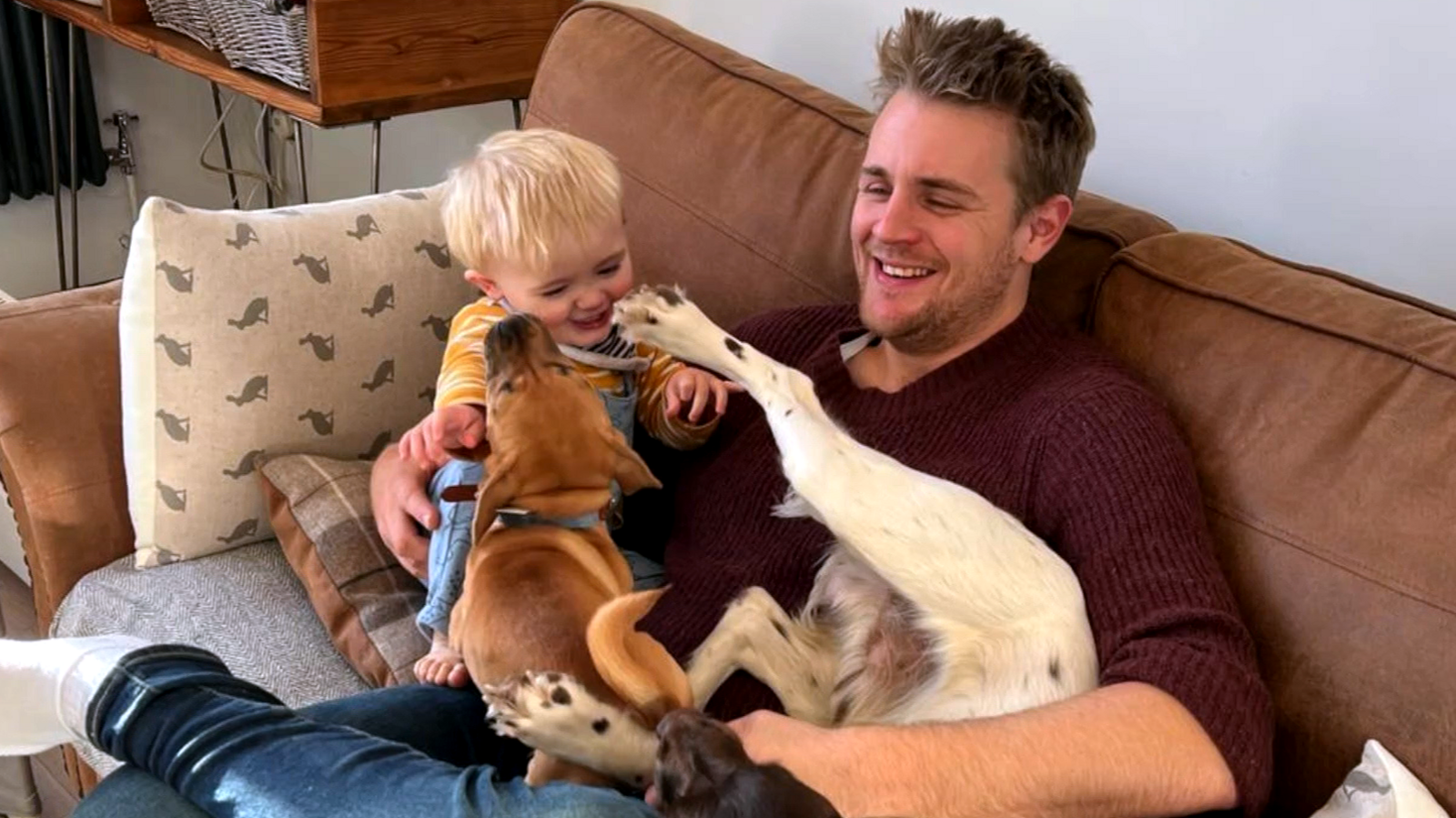
Henry Barringer, who had a young son, died 11 months after his diagnosis
- Published
The widow and parents of a man who died of an aggressive brain tumour have urged people who notice a rapid change in their loved one's personality to get them checked.
Henry Barringer's family said the 35-year-old from North Walsham, Norfolk, went from a "fun" and "loveable" father of a young son to someone who was acerbic.
He died 11 months after being diagnosed in 2023 and now his family and friends are raising money for more research into and better treatment for brain cancer.
The charity Brain Tumour Research (BTR), based in Milton Keynes, said brain tumours kill more people under 40 than any other cancer, with more children dying from brain cancer than any other disease.
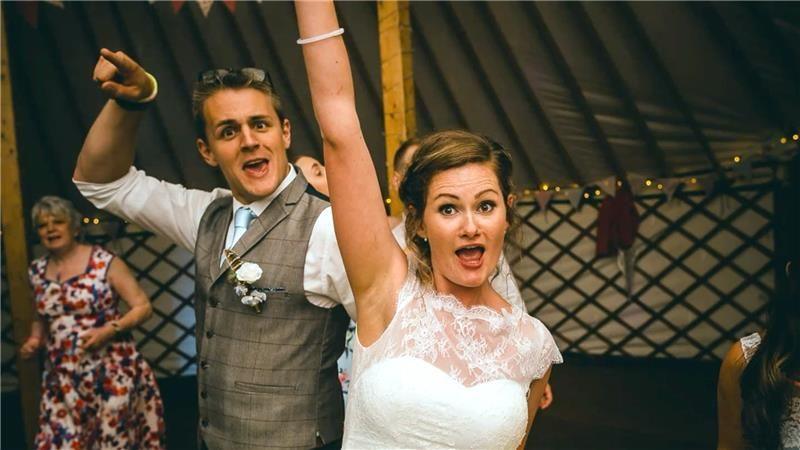
Henry and Rebecca Barringer on their wedding day
Henry loved life, had a great sense of humour, enjoyed country pursuits, and played amatuer rugby for Holt before his illness.
"I guess you just think with someone so young and so fit that it's the last person that's going to get cancer, especially a brain tumour and the severity of it.
"It was a big shock," said his widow, Rebecca.
The tumour caused migraines and vomiting. He became more blunt and less patient.
"His personality changed quite a lot. There was no filter when he was talking," she said.
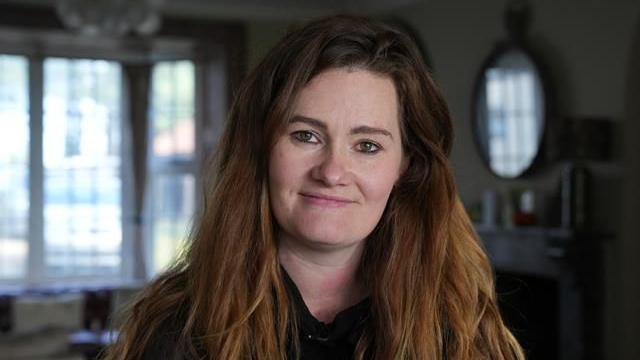
Rebecca Barringer is urging people to get checked if they have headaches and notice rapid personality changes
He was eventually diagnosed with gliobastoma, a common, aggressive tumour.
It was deemed inoperable and he was given radiotherapy and chemotherapy as part of the NHS standard of care for brain tumour patients.
The treatment resulted in his normal personality returning as the tumour shrank and he had fewer headaches.
But, after a three-month reprieve, the cancer return more aggessively in March last year.
His parents paid thousands of pounds to send a sample of his tumour to America in a bid to access apotentially life-prolonging treatment not available in the UK.
Henry died in May 2024, before the results arrived.
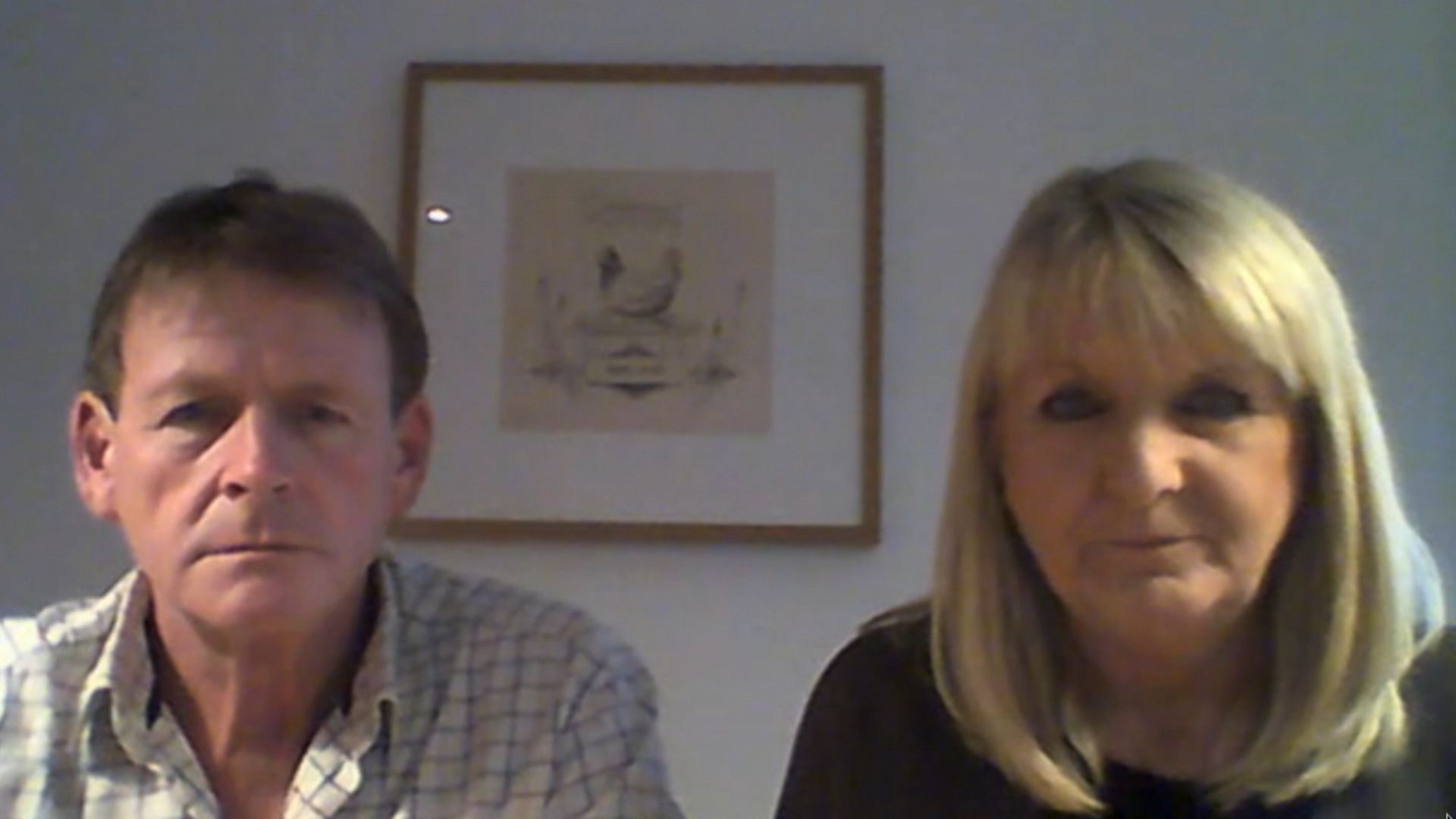
Bob and Linda Barringer said their son's death has left a large hole in their lives but they take comfort in their memories
His father, Bob Barringer, 64, said: "Initially he was given a diagnosis of somewhere between one and 10 years.
"And being Henry he was aiming for 10 years. Then he got his secondary tumour on his spine and he went rapidly downhill."
His mother, Linda, 65, said: "For a lot of people there are treatments but for Henry, when we read up there was so little to offer him."
There are 100 different types of brain tumours according to BTR, making it difficult to find effective treatment.
But only 1% of the national spend on cancer research is on brain tumours, said the charity.
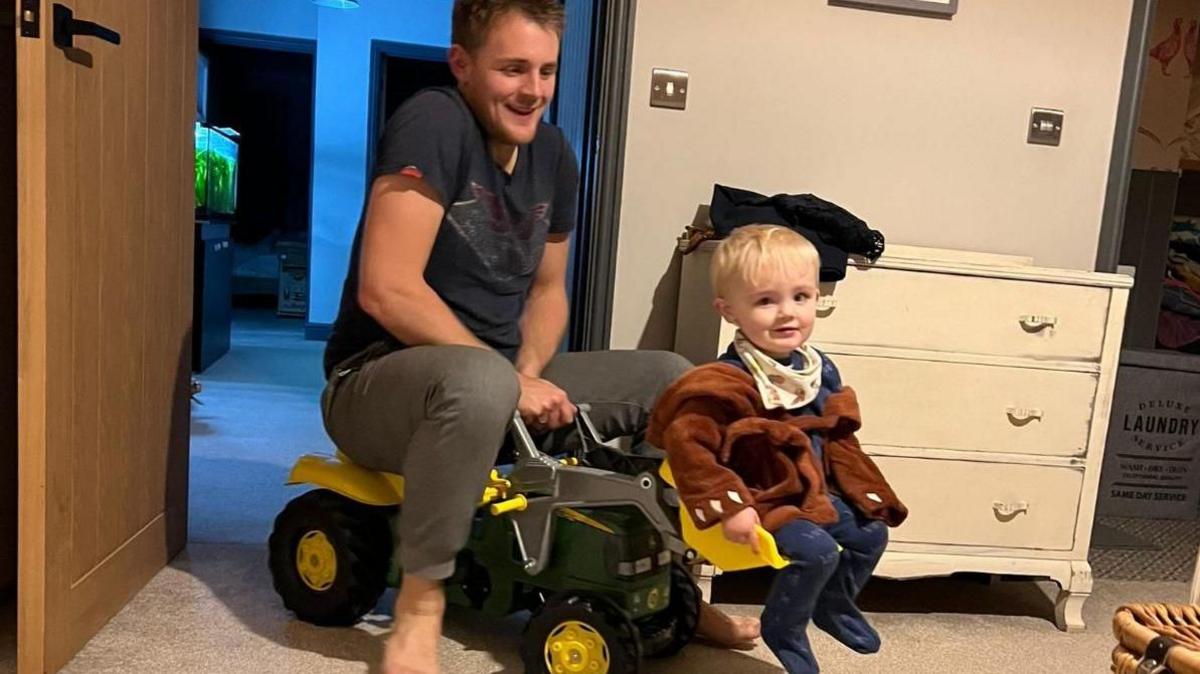
Henry Barringer was diagnosed with brain cancer when his son was two
Hugh Adams, of BTR, said more funding was essential.
"It's a pretty simple equation.
"If you put money into this arena and you fund the basic science that underpins all clinical innovation, we will get closer to cures, that's why Henry's family sharing his story is so important."
Henry's parents said his death had left a "big void" in all their lives.
His former work colleagues and his sister, Hannah, will tackle the Three Peaks Challenge in his memory in May 2026.
"We just don't want other families to go through the devastation that ours had to go through," said Linda Barringer.
"It's the most horrendous thing to not have those treatments to turn to, that was the most devastating thing."
Get in touch
Do you have a story suggestion for Norfolk?
Follow Norfolk news on BBC Sounds, Facebook, external, Instagram, external and X, external.
Related topics
More related stories
- Published22 October
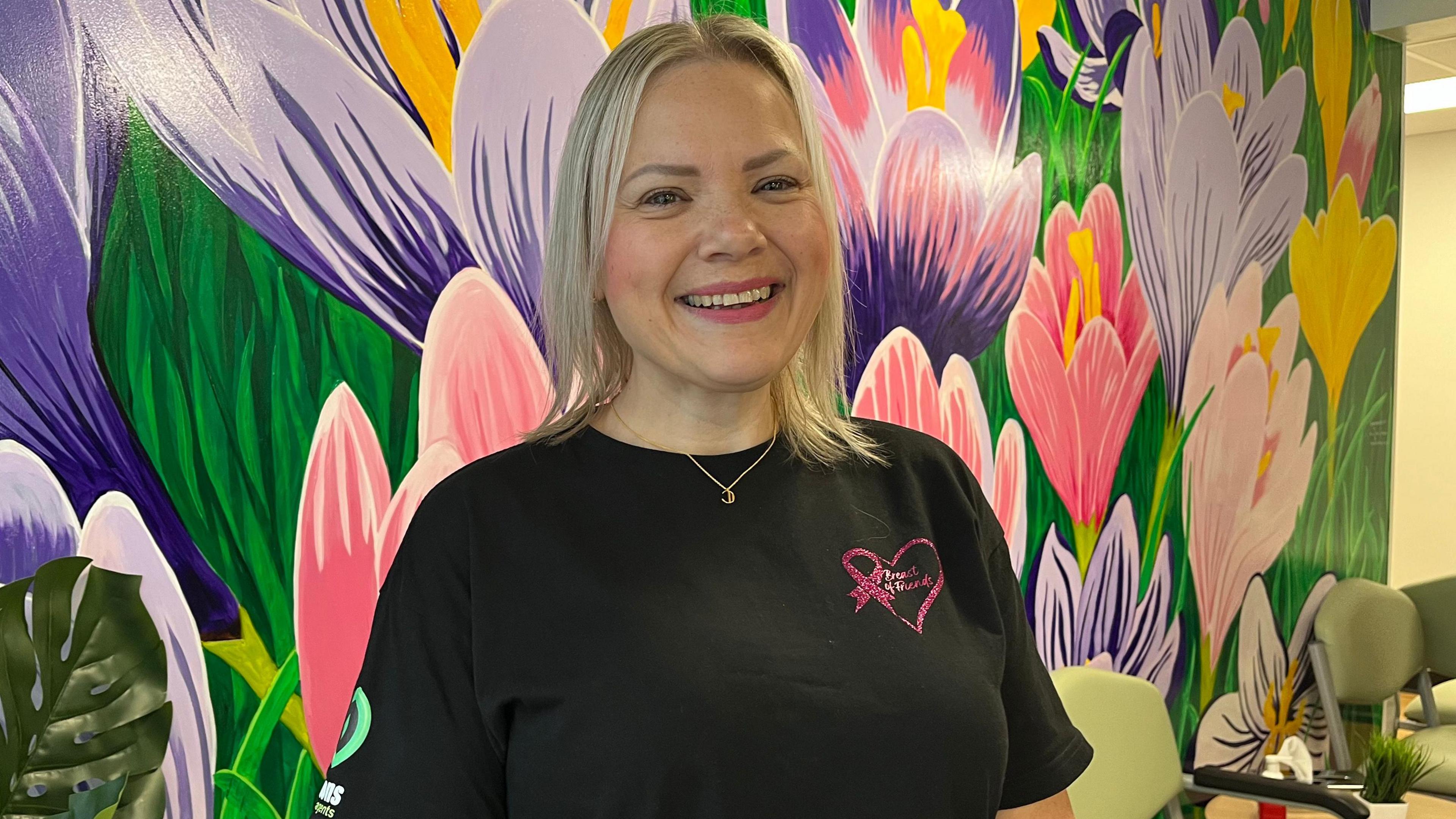
- Published19 October
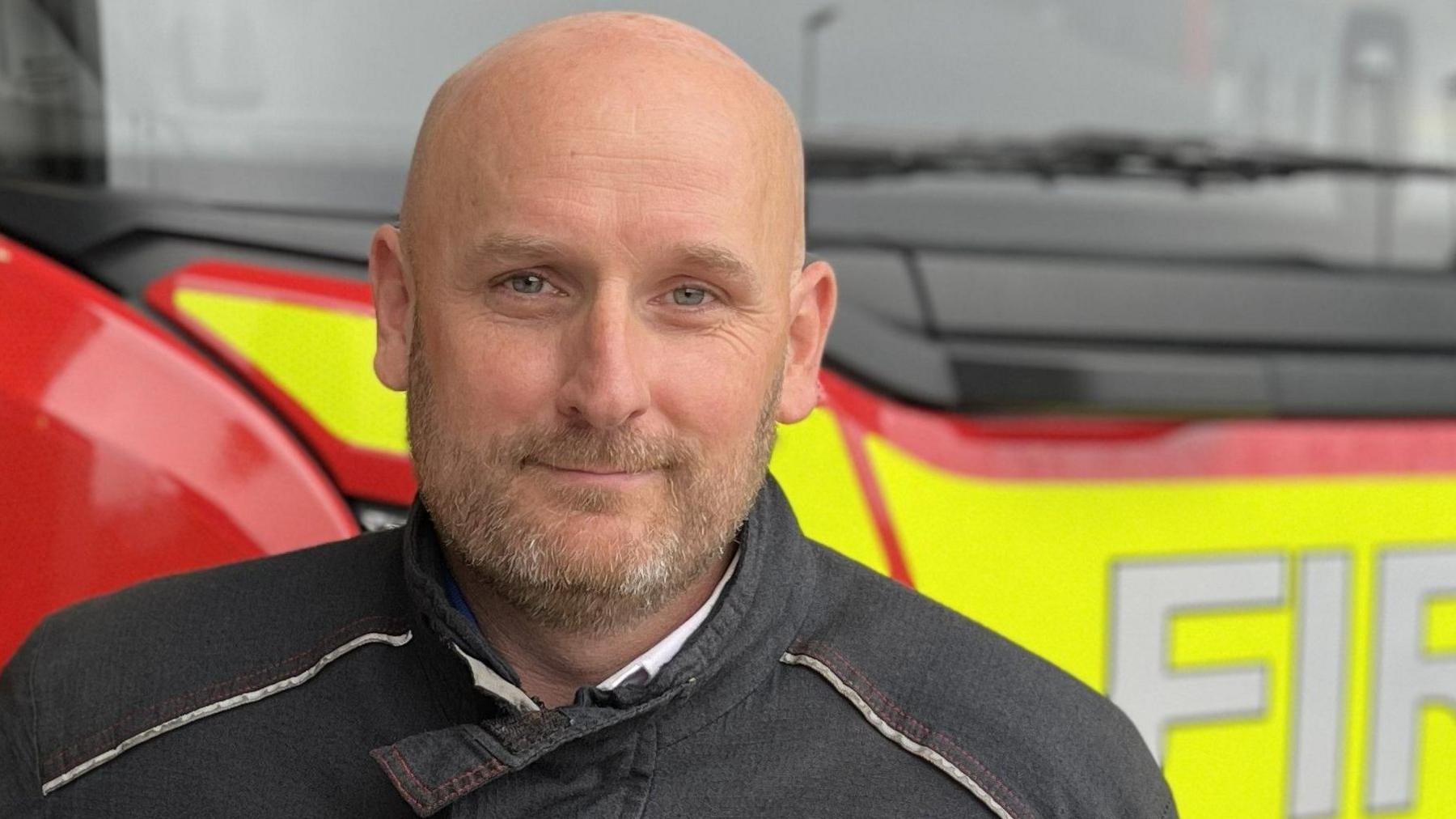
- Published28 September
